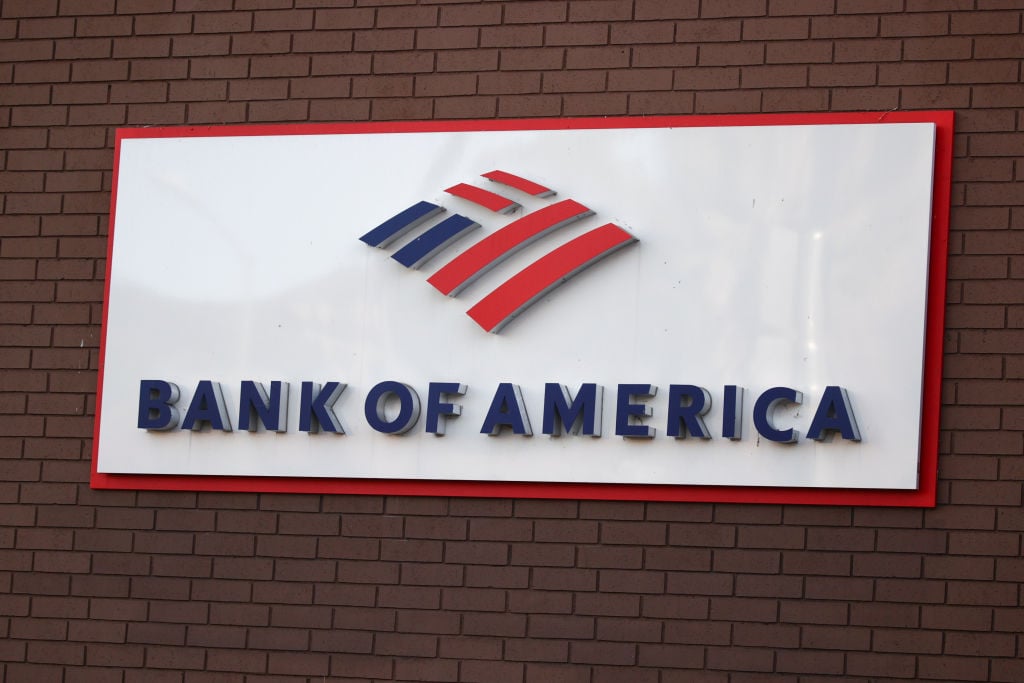It's become clear that Bank of America (BAC +0.72%) can do nothing right in the eyes of the media. After spending years castigating the nation's second-largest lender for its admittedly abysmal record on customer service, along with a laundry list of other offenses, the financial press is now rebuking B of A's efforts to fix the problem.
On Tuesday of last week, CEO Brian Moynihan said in a letter to employees that the bank must clean up its act if it wants to compete with the likes of JPMorgan Chase (JPM +1.04%) and Wells Fargo (WFC 0.65%), both of which have placed service at the center of their growth strategies. The letter highlighted efforts to improve customer communications and make services more accessible by locating investment specialists and mortgage loan officers in branches throughout the country.
The bank's executives also announced at a company event on Thursday that a new marketing campaign is in the works. Its purpose is to repair B of A's image, which has remained tarnished in the eyes of consumers since the financial crisis. "It just boils down to being better than we are today," Moynihan said in a video played at the gathering.
It's tempting to think the media would welcome B of A's mea culpa with open arms. But the reality couldn't be further from the truth. An headline by DealBreaker read: "B of A to Spend Mortgage Savings Telling Everyone How Not-Horrible It Is." Referring to Moynihan's quote above, the hyperbolic publication quipped: "He's just a branding executive's dream-come-true isn't he?" A Foolish colleague of mine referred to the bank's moves as an "attack of the warm and fuzzies."
Although admittedly entertaining, takes like these miss the point. B of A isn't like JPMorgan, which believes that it should be thanked regularly and profusely for gracing the world with its thinly veiled self-interested deeds. And unlike Citigroup (C +0.49%), B of A's entire history hasn't been predicated upon a patent disregard for legal and/or regulatory authority.
The reality is that, at least over the last few years, B of A has done more than its fair share of atoning for the sins of others. What I'm referring to is its 2008 acquisition of Countrywide Financial, which saddled B of A with tens of billions of dollars in liability associated with fraudulently originated mortgages. Had the bank not purchased the mortgage originator and thereby assumed its liabilities, hundreds of public and private mortgage investors would have been left without pecuniary recourse for Countrywide's pre-acquisition frauds. While Countrywide committed the crime, in other words, B of A is doing the time.
This isn't to say that B of A doesn't have its own crosses to bear. After all, under the unfortunate and regrettable stewardship of Ken Lewis, the bank did voluntarily purchase Countrywide and participate in the securitization extravaganza that fueled the financial crisis. But there's a difference between doing something even prodigiously stupid and doing something criminal, which is how I'd describe Countrywide's operations prior to 2008.
Beyond this, and much more critically for B of A's shareholders, the bank's moves serve as tangible evidence that the weight from the crisis may finally be lifting from the bank's operational and financial shoulders. In the news release announcing its third-quarter financial results last year, CFO Bruce Thompson noted that the executive team has now turned its attention to "driving core earnings," as opposed to managing liability from legacy issues. The bank has since renewed its aspirations in the mortgage market and, if the reports from last week are true, doubled down on the importance of customer service.
It's in this context that the bank's announcements from last week should be read, as the change in focus could be a harbinger of lower expenses and higher revenue to come.









